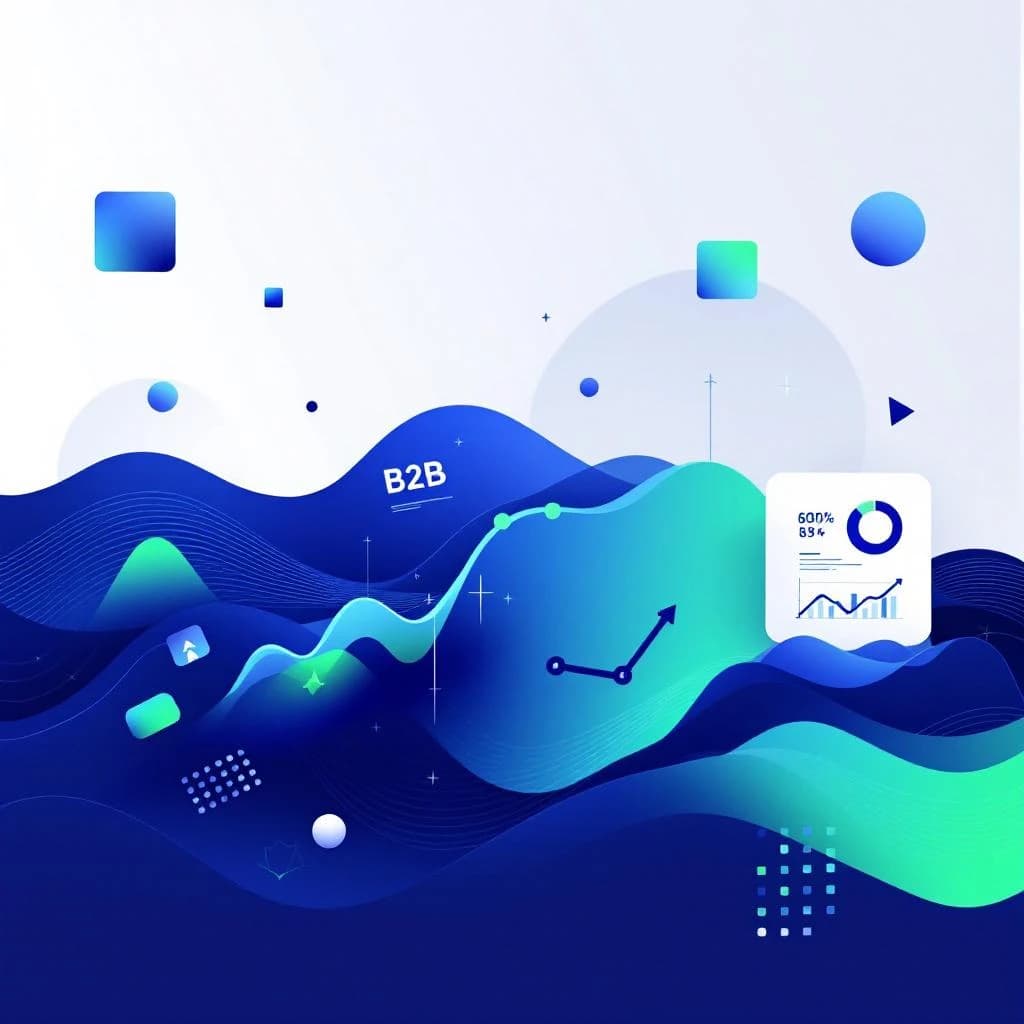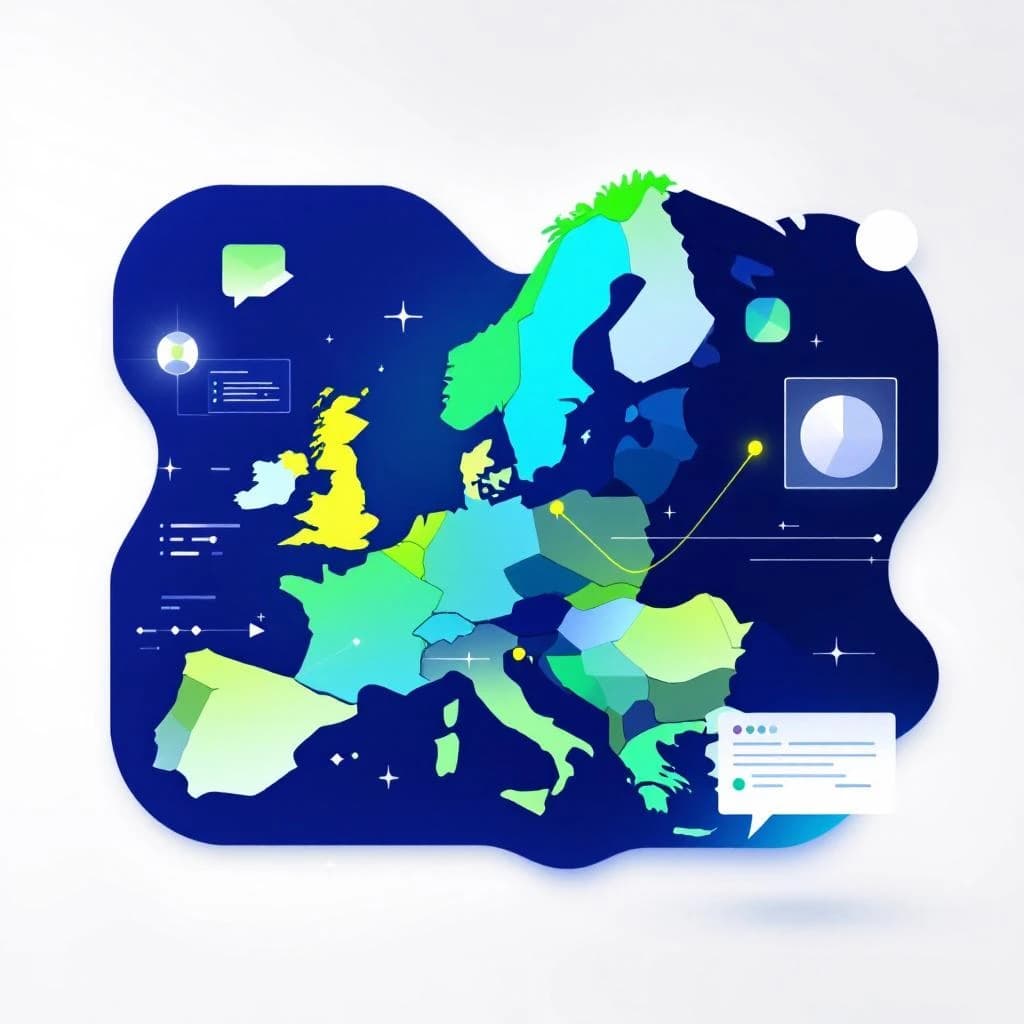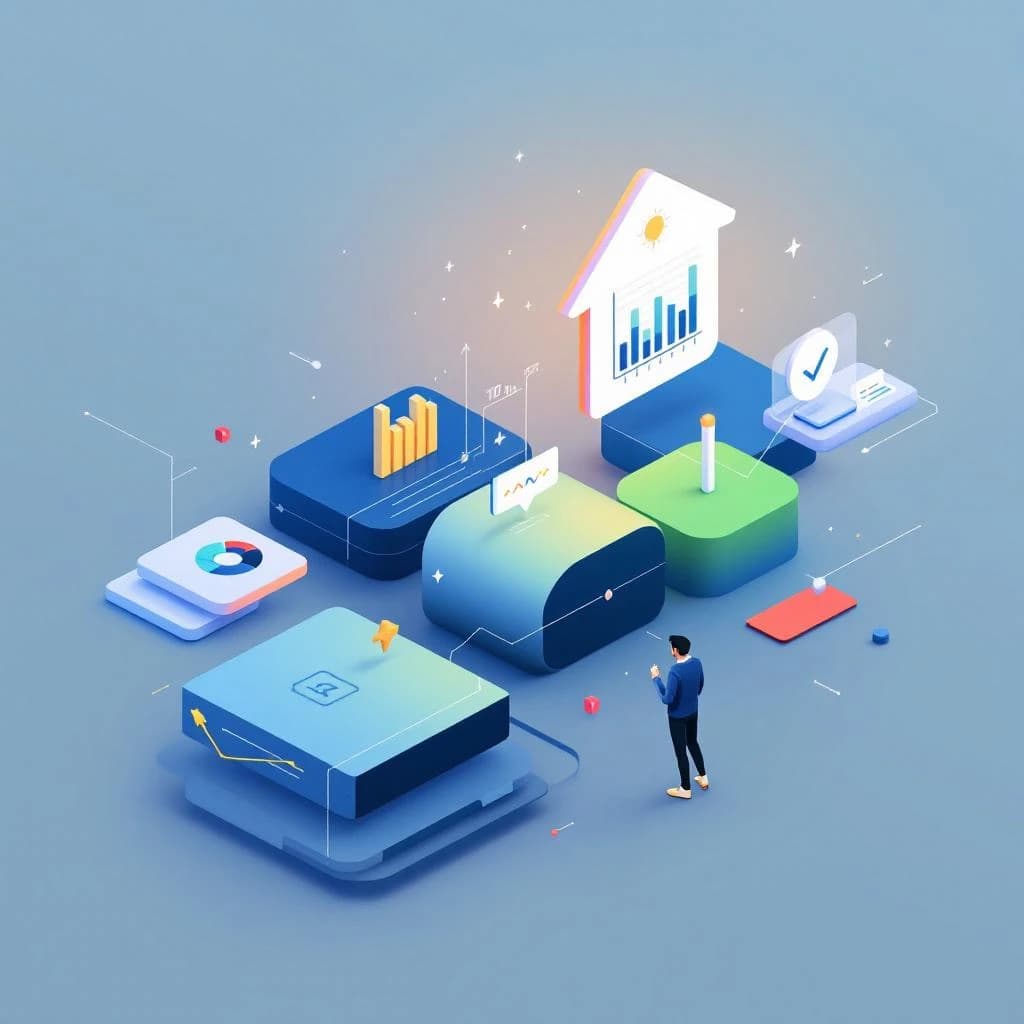What Are B2B Sales: Complete Guide for B2B Companies in 2025

What Are B2B Sales: Complete Guide for B2B Companies in 2025
The B2B sales landscape has transformed dramatically. While 84% of B2B buyers now prefer to buy online without a sales rep, the companies that thrive are those that understand what B2B sales truly means in today's digital-first world.
B2B sales isn't just about selling products or services between businesses anymore. It's about orchestrating complex, data-driven strategies that align with how modern buyers actually purchase. With sales cycles stretching to an average of 102 days, understanding the fundamentals has never been more critical.
This comprehensive guide will demystify what B2B sales means today, reveal the key trends reshaping the industry, and provide actionable frameworks to build predictable pipeline in 2025.
What Are B2B Sales: The Modern Definition
B2B sales, or business-to-business sales, refers to the process of selling products or services from one business to another. Unlike B2C transactions, B2B sales involve longer decision cycles, multiple stakeholders, and significantly higher transaction values.
📊 Key Insight: 75% of B2B buyers expect a sales rep to provide a tailored solution, making personalisation critical to success.
What makes B2B sales unique in 2025:
- Complex decision-making processes involving 6-10 stakeholders on average
- Longer sales cycles requiring sustained relationship building
- Higher stakes transactions often involving significant budget allocations
- Consultative approach focused on solving business problems rather than pushing products
- Data-driven strategies leveraging technology and analytics for precision targeting
The modern B2B sales process extends far beyond traditional prospecting and closing. It encompasses market research, lead generation, nurturing, consultative selling, and long-term customer success management.
The Evolution of B2B Sales in 2025
The B2B sales environment has undergone a seismic shift, driven by digital transformation and changing buyer behaviours. Understanding these changes is crucial for any B2B company looking to remain competitive.
Digital-First Buying Journey
Today's B2B buyers are more informed and independent than ever before. They conduct extensive research online, compare solutions, and often make purchase decisions before ever speaking to a sales representative.
⚡ Pro Tip: Create comprehensive digital touchpoints throughout the buyer's journey to capture and nurture prospects even when they're not ready to speak with sales.
Hybrid Sales Models Dominate
70% of B2B sales teams now use a hybrid sales model, combining remote and in-person interactions. This approach offers flexibility whilst maintaining the personal touch that complex B2B transactions require.
AI and Automation Revolution
Artificial intelligence has transformed B2B sales operations. AI adoption in B2B sales increased by 45% from 2022 to 2024, enabling:
- Predictive lead scoring
- Automated outreach sequences
- Personalised content recommendations
- Sales forecasting and pipeline management
- Customer behaviour analysis
Key Components of Successful B2B Sales
1. Strategic Prospecting and Lead Generation
Effective B2B sales begins with identifying and targeting the right prospects. This involves:
- Ideal Customer Profile (ICP) development based on data analysis
- Multi-channel outreach across email, LinkedIn, phone, and content marketing
- Account-based marketing (ABM) for high-value targets
- Lead qualification frameworks like BANT or MEDDIC
2. Consultative Selling Approach
Modern B2B sales requires a shift from product-focused pitching to problem-solving consultancy. Sales professionals must:
- Understand the prospect's business challenges deeply
- Present tailored solutions that address specific pain points
- Demonstrate clear ROI and business value
- Build trust through expertise and industry knowledge
3. Multi-Stakeholder Engagement
B2B purchases typically involve multiple decision-makers, including:
- Economic buyers who control the budget
- Technical evaluators who assess functionality
- End users who will implement the solution
- Influencers who shape opinions within the organisation
Successful B2B sales teams develop strategies to engage each stakeholder group effectively.
The Importance of Customer Experience in B2B Sales
Customer experience has become a primary differentiator in B2B sales. 68% of B2B companies say customer experience is their primary competitive advantage, highlighting its critical importance.
Elements of Superior B2B Customer Experience
| Element | Description | Impact |
|---|---|---|
| Personalisation | Tailored communications and solutions | Higher conversion rates |
| Responsiveness | Quick response to inquiries and issues | Improved trust and satisfaction |
| Expertise | Deep industry knowledge and insights | Enhanced credibility |
| Transparency | Clear pricing, processes, and timelines | Reduced sales cycle length |
| Support | Comprehensive onboarding and ongoing assistance | Higher customer lifetime value |
💡 Key Insight: Companies that prioritise customer experience see 60% higher profits and 2.3x higher customer retention rates.
Sales and Marketing Alignment: The Revenue Engine
One of the most critical factors in B2B sales success is the alignment between sales and marketing teams. High-performing sales and marketing teams achieve 36% higher customer retention and 38% higher sales win rates.
Framework for Sales-Marketing Alignment
- Shared definitions of leads, opportunities, and customer lifecycle stages
- Unified data systems enabling seamless handoffs and tracking
- Joint planning sessions for campaigns, messaging, and target accounts
- Regular communication through weekly alignment meetings
- Shared metrics focusing on revenue generation rather than department-specific KPIs
Common Alignment Challenges
- Inconsistent lead qualification criteria
- Misaligned messaging and positioning
- Poor data sharing and communication
- Different success metrics and incentives
- Lack of feedback loops between teams
The Power of Customer Retention in B2B Sales
Whilst new customer acquisition often receives the most attention, customer retention and expansion represent enormous opportunities. 60% of B2B revenue comes from existing customers, making retention strategies crucial for sustainable growth.
Customer Success Strategies
- Onboarding excellence ensuring customers achieve early wins
- Regular check-ins to identify expansion opportunities
- Value demonstration through metrics and case studies
- Proactive support addressing issues before they become problems
- Upselling and cross-selling based on customer success and growth
⚡ Pro Tip: Implement a customer health scoring system to identify at-risk accounts and expansion opportunities proactively.
Technology Stack for Modern B2B Sales
Technology plays a crucial role in enabling efficient and effective B2B sales processes. Essential tools include:
Core Sales Technology
- Customer Relationship Management (CRM) for pipeline tracking and customer data
- Sales engagement platforms for automated outreach and follow-up
- Lead intelligence tools for prospect research and data enrichment
- Video conferencing solutions for remote selling and demonstrations
- Proposal and contract management for streamlined closing processes
- Analytics and reporting tools for performance tracking and optimisation
Emerging Technologies
- Conversational AI for lead qualification and initial engagement
- Predictive analytics for sales forecasting and opportunity scoring
- Social selling tools for LinkedIn and social media engagement
- Revenue intelligence platforms for call analysis and coaching
Building a Predictable B2B Sales Process
Creating predictability in B2B sales requires a systematic approach to process design and execution.
The PROSPECT Framework
- Profile your ideal customers using data-driven insights
- Reach prospects through multi-channel outreach campaigns
- Organise leads using qualification frameworks and scoring
- Strategy development for each opportunity and stakeholder
- Present solutions that address specific business challenges
- Engage all decision-makers throughout the buying process
- Close deals with clear next steps and implementation plans
- Track and optimise performance through data analysis
Measuring B2B Sales Success
Key metrics for B2B sales performance include:
- Pipeline velocity - speed of deals through sales stages
- Conversion rates at each stage of the sales funnel
- Average deal size and trends over time
- Customer acquisition cost (CAC) compared to lifetime value
- Sales cycle length and factors that influence timing
- Win rates by lead source, deal size, and sales rep
📊 Success Metric: Top-performing B2B sales teams achieve win rates of 25-30% compared to the industry average of 15-20%.
Key Takeaways
- B2B sales in 2025 requires a digital-first, data-driven approach that aligns with modern buyer preferences and behaviours
- Customer experience has become the primary competitive differentiator, with personalisation and consultative selling driving success
- Sales and marketing alignment is crucial, with aligned teams achieving significantly higher retention and win rates
- Technology and AI adoption is accelerating, enabling more efficient prospecting, engagement, and pipeline management
- Customer retention and expansion represent the majority of B2B revenue, making post-sale success strategies essential
- Hybrid sales models combining remote and in-person interactions have become the standard approach for most B2B teams
- Predictable pipeline generation requires systematic processes, clear metrics, and continuous optimisation based on performance data
Recommended Tools
These tools can help you implement the strategies discussed in this article.
Apollo
Data Enrichment
B2B database and sales intelligence platform
Free plan available, paid from $49/month
- ✓275M+ contacts
- ✓Email sequences
- ✓Chrome extension
- ✓CRM integrations
We may earn a commission at no cost to you
Smartlead
Cold Email Platform
Advanced cold email platform with unlimited inboxes and AI optimization
From $39/month
- ✓Unlimited email accounts
- ✓AI-powered email warmup
- ✓Advanced deliverability tools
- ✓Multi-channel sequences
We may earn a commission at no cost to you
Clay
Data Enrichment
All-in-one data enrichment and workflow automation platform
From $149/month
- ✓75+ data providers
- ✓AI-powered enrichment
- ✓Workflow automation
- ✓Waterfall enrichment
We may earn a commission at no cost to you
Conclusion
B2B sales has evolved from a relationship-based, intuition-driven practice to a sophisticated, technology-enabled discipline. Success in 2025 requires understanding that B2B sales encompasses the entire customer lifecycle, from initial awareness through long-term retention and expansion.
The companies that thrive are those that embrace digital transformation whilst maintaining the human elements that complex B2B transactions require. They leverage data and technology to enhance rather than replace relationship building, creating predictable pipeline through systematic processes and continuous optimisation.
If you're looking to build predictable pipeline and scale your GTM execution with precision, ProspectX can help. We deliver elite execution through data-driven strategies that book qualified meetings and drive sustainable revenue growth. Our approach combines the latest technology with proven methodologies to help B2B companies achieve their sales objectives.
Affiliate Disclosure: Some links in this article are affiliate links, which means we may earn a commission if you make a purchase. This comes at no additional cost to you and helps us continue creating valuable content.
Ready to Build Predictable Pipeline?
ProspectX delivers elite GTM execution through data-driven strategies. We handle everything from ICP research to qualified meetings in your target markets—helping you scale with precision.


